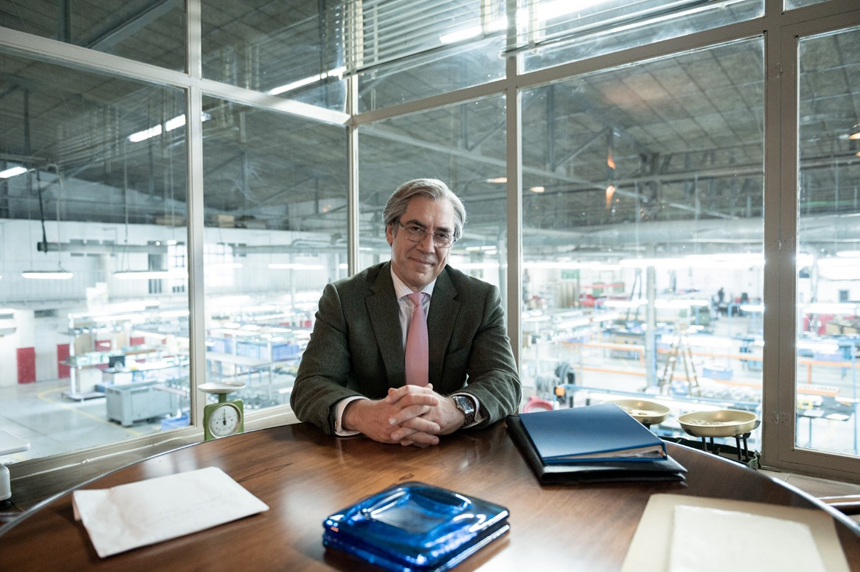The Good Boss
⭐️ ⭐️ ⭐️⭐️
Run Time: 1 hour 56 minutes
Stars: Javier Bardem, Manolo Solo, Almudena Amor, Óscar de la Fuente
Writer/Director: Fernando León de Aranoa
In Theaters
Have you ever worked at a place where management keeps insisting they consider their employees “family?”
It’s one of those short-sighted company morale-boosting strategies that work for exactly as long as it takes to get to the next wave of layoffs — which in my experience is usually a matter of months, if not weeks, after the first declaration of familial workplace affection is uttered.
In the dark corporate comedy The Good Boss, Javier Bardem plays Blanco, the charismatic owner of Spanish company that manufactures scales — devices that weigh everything from cold cuts to cattle. Fittingly, Blanco spends much of the movie weighing his professed desire to treat his people like family — and maintaining the healthy bottom line that has made him a very, very rich and influential man.
You can probably guess which way the scale tips most of the time.
Writer/director Fernando León de Aranoa has a skeptical view of corporate largesse, and a sharp ear for the language of executive suite manipulation in action. We meet Blanco at a particularly fraught juncture: His company is one of three finalists for a government award honoring workplace environment. The winner not only gets a fancy trophy (a spot for which Blanco has already prepared on his living room wall), but there are government subsidy implications, as well.
To help ensure victory, it appears Blanco has cleaned house of any potentially troublesome employees. But he did not count on the belligerence of one axed worker (Óscar de la Fuente), who encamps himself on an empty lot across from the factory entrance and spends every day screaming rhyming obscenities through a bullhorn.
Then there’s Blanco’s distraught floor manager Miralles (Manolo Solo), who’s so preoccupied with proving the suspected infidelity of his wife, Aurora, (Mara Guil) that he’s committing one monumental workplace screw-up after another. Desperate to get Miralles back on track, Blanco finds himself driving around town, pleading with the wayward spouse to repent — only to learn a lot more than he cares to know about his employees’ love lives.
Of course, Blanco doesn’t help his own cause when he chooses this particular week to ignite an affair with a lovely young intern (Almudena Amor) whose full identity he doesn’t learn until it is way, way too late.
Fresh off his standout performance as Desi Arnaz in Being the Ricardos, Bardem continues his comfortable slide into the midlife phase of his career. His hair graying nicely, his face pleasantly lined, Bardem brings the authority of experience to Blanco, along with the charm of a man who has been talking his way through trouble for a lifetime.
Blanco is also guilty of that familiar spectrum of self-delusion that comes with age. Having dinner with a fellow titan of industry, Blanco leans back in his chair and bemoans today’s young people, who expect success to be handed to them.
“I worked hard for everything I’ve got,” he says, and the friend nods in agreement — until both their wives gently remind them they inherited their successful businesses.
Spot-on as corporate satire, infused with humanity thanks to a funny and committed cast, The Good Boss draws its inspiration from classic workplace comedies like Office Space and The Devil Wears Prada.
De Aranoa even lifts his coda, with disarming effectiveness, from the ending of The Graduate: The last shot lingers on Blanco, once more weighing the alternatives, considering the glittering award he covets and what he has done in pursuit of it.
As Bardem, the consummate screen actor, wordlessly registers Blanco’s boundless pride, his insatiable ambition, and his gnawing regrets, it is hard not to harken back to Dustin Hoffman and Katharine Ross, riding in the back of that bus, their faces slowly betraying the realization that getting everything you want may mean giving up everything that’s important.
Become a Saturday Evening Post member and enjoy unlimited access. Subscribe now




Comments
This film sounds like it might actually be worthy of my time. I like sophisticated dark comedies. Hopefully I’ll see it Bill, when/if it comes to Hulu.